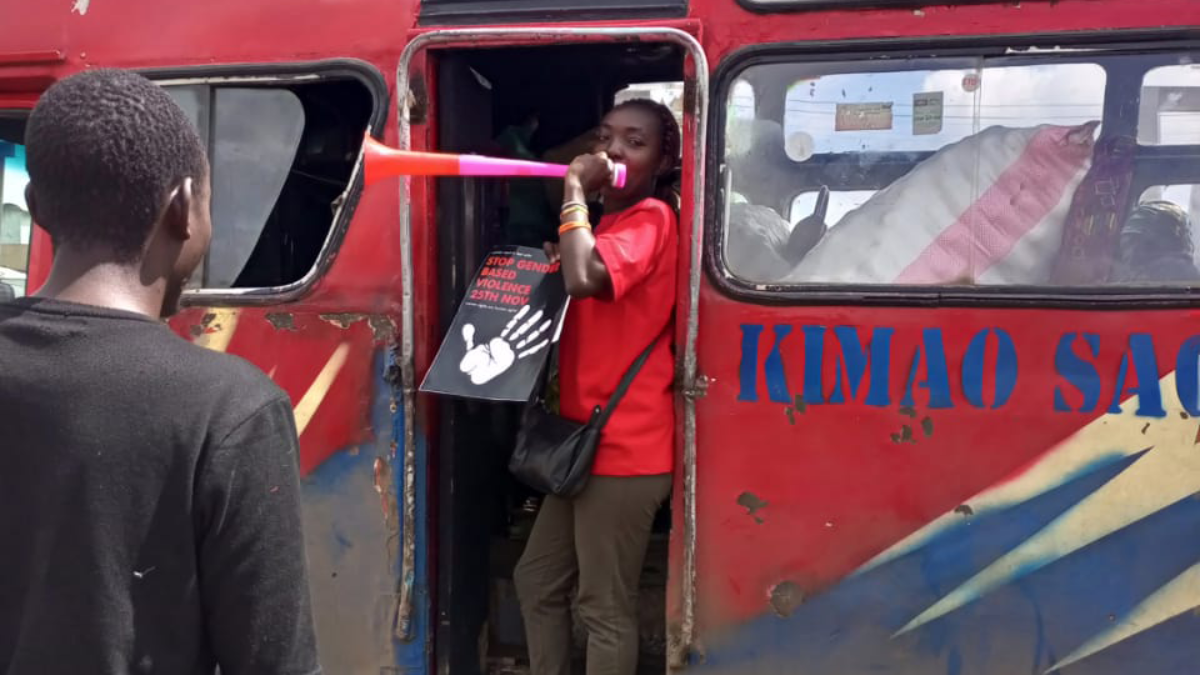Transcripción
Some months ago we had cases of gender-based violence and sexual harassment that occurred in our informal sector in transport, that is the matatu industry. Ladies in this sector were complaining of being harassed by their co-workers, that’s the male gender, who were claiming that they were being asked for sexual favours for them to be promoted at work and to be allowed to work for a shorter time of work. So, a number of ladies who were harassed… they went to the management office of the informal sector, that is the matatu, they complained of the issue but the management couldn’t listen to them. They ended up… instead of listening to them, they ended up dismissing them from work. The ladies came to our office to launch that complaint to us, and we listened to them. We took a step with their workplace office, just to listen to what the management is saying, but the management said that such a thing has never happened and said that they don’t even want to re-employ those ladies because now they are spoiling the name of the company. Now what we did, this thing raised eyebrows from the other ladies in the sector who now came and asked us, now that they are our members what are we going to do for them? We sat with them, then we decided to organise a campaign to sensitise people more about sexual harassment and gender-based violence, which we did, basically with the ladies working in the transport industry and some gents also joined us. Here we talked of the types of harassment, how to protect yourself from being harassed, signs that one can notice to and see those things. And so we took to the streets in support of ITF, we went to the streets, we had a peaceful demonstration in the streets, and we were listened to. And after doing this, now the management saw the importance of the ladies being at work and why they should not be sexually harassed, so the management called us again, we sat down, negotiated and they agreed to talk to the men that are in the industry not to sexually harass the women. And they re-employed those ladies back to the industry. And from there, now it became a routine in the matatu industry that whenever you are joining that industry to work one of the things you are going to do is to sign a check-off for the union. Now, we are organising meetings for them to teach them more about gender-based violence, their safety at work, things to do with C190 and Recommendation 206… and, basically, creating more awareness in the matatu industry. And now, the workers there, although most of them are not formally employed but they’re seeing the need of being union members. And that’s what we did, on our part as the Transport Allied Workers’ Union.
NOTE.
In Kenya, the informal transport sector (matatu industry) is organised into what we call SACCOs. SACCOs determine fleets’ routes and destinations.
Reflexiones
Convention 190 and Recommendation 206 recognise that preventing and eliminating violence and harassment in the world of work requires members to respect, promote and realise the fundamental principles and rights at work as well as promote decent work. Workers need to understand that sexual harassment is a global issue that can be addressed at local level.
Mis próximos pasos
There is no different approach in my work…just working hard so that, just like any other work in a different sector, transport workers are not sexually harassed and can enjoy the work that they do. They should feel safe and protected at all times when at work. They should also see that we handle such cases very seriously.




0 Comentarios
Compartir historia